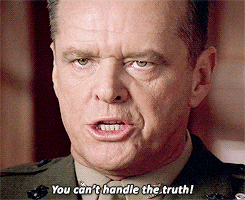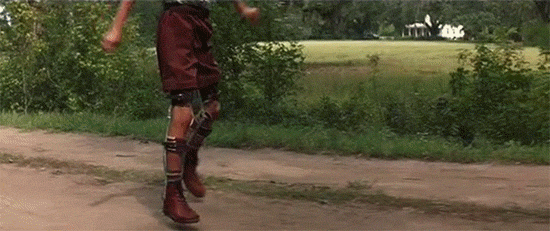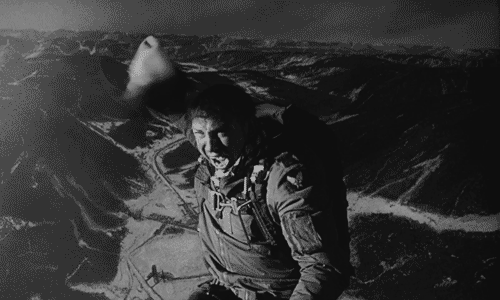
Essays
My wife and I live on 48 acres in the middle of nowhere. Yet the government—local, state, federal—could let a power company put up poles on our land using the authority of eminent domain. The Fifth Amendment allows the government to grab private property for public use if owners receive just compensation.....
For years I tried, and mostly failed, to tell the story of my childhood molestation.
I played a kind of literary hide and seek. To throw the reader off my trail, I threw my voice. I became a practiced ventriloquist. My first dummy was a poem, and even though my poetry tends toward the confessional, I couldn’t bring myself to confess openly. I used metaphor, fine writing, versifying, as a feint.
Five years later, I tried again....
Here’s a notion we memoirists lean into and hard: there is no larger, objective truth. Call it absolute truth, forever absent. Call it the inconvenient truth. Call it the reality we all share—and can’t agree on. There are only our personal truths, which we hold to be self-evident.....
Lit Hub — "Is There Such a Thing as Catskills Lit?"
The Catskills of upstate New York are defined by desertion. Long gone is Lenapehoking — Land of the Lenape — and gone, too, is New Netherland. The train depots and churches converted into second houses — they are not homes — for rich residents of Manhattan and Brooklyn sit empty most the year. Rust Belt factories have been rebranded as small-batch Hudson Valley distilleries, or left to topple in, and the industry, hospitality, that defined the Catskills for the past century is in shambles. Even the eastern cougars that lend the region its name were long ago hunted to extinction....
Poets & Writers — "The Unwilling Suspension of Disbelief"
Like most writers, I consider myself reasonably self-aware. I do believe the unexamined life is worth living, but it’s not a life I’d care to live, at least not as an adult. Yet I’d managed to work on a novel nearly every day for five years, and it never occurred to me that the emotional hardships, the traumas, I was running my characters through were so plainly, and painfully, my own. About a month before a publisher acquired my first novel, The Standard Grand — a novel that concerns a large cast of characters, civilians and veterans, fighting through trauma and its aftermath — I was diagnosed with post-traumatic stress disorder (PTSD)....
The Baffler — "Boys Do Cry (and Shoot)"
Our American mass shootings are misunderstood as a mental-health concern, and the toxic masculinity that compels many shooters isn’t anything so simple as longstanding socialized behavior rendered recently abhorrent. Male fragility is a biological fact, encoded in our cells. This certainty has yet to work its way into our popular consciousness, but the body of evidence is now irrefutable. Each lone gunman — engaging, by the week, in blatant acts of domestic terrorism, eroding the safety of our schools, dance clubs, and churches — shows us the same damn thing....
The Baffler — "Just Deserts"
"Remember the old days?” candidate Trump asked the crowd at a July 2016 rally. “A deserter, what happened?” Trump pantomimed aiming a rifle and pulled the invisible trigger, answering his own rhetorical question with a deadpan “Bang.” He was riffing on the case of Sergeant Bowe Bergdahl, who walked away from his battalion in 2009 and was captured by the Afghan Taliban....
Poets & Writers — "Writers Recommend"
In my mid-thirties, I started jogging and, shortly thereafter, I began a new novel. My wife, Thisbe, and I had recently bought our first house in the Catskills, some three miles from Woodstock. I’d finished but failed to publish three earlier novels. I always hated jogging. I found the slog dull. Nevertheless, the new novel centered, at first, around a runner. A middle-aged ultra marathoner inspired by Diane Van Deren....
I’m fascinated by literary couples. Part of the compulsion is tabloid — I was crushed when Paul Lisicky and Mark Doty split; no book made me sob harder than The Best Day the Worst Day, Donald Hall’s memoir of the life he shared with Jane Kenyon before her death — but some of my interest is logistical....
David Abrams' The Quivering Pen — "My Library"
David Abrams' The Quivering Pen — "My First Time"
Publishing a novel isn’t just a matter of murdering your darlings. Killing darlings is easy by comparison... You’ve got to be willing to firebomb Dresden. To fly the plane. Identify the target. And ride a bomb giddyupping on down to the goddamn ground. Lay utter waste to years, even decades, of building sentences and characters and settings, bringing it all lovingly to life, only to be the one to give the awful order and, in the aftermath, dance madly round your own intimate devastation. On top of the ashes of first times — and first novels, plural — you may then, if you’re lucky, make something that, in the full maturity of repeated but ever greater failures, comes to feel like second nature....
Largehearted Boy — "Booknotes: A Playlist"
Slews of writers out there listen to music while they write. For me, dead silence isn't a necessity but pretty damn near. Instrumentals, maybe. Anything with lyrics? Forget it. Singing, talking, or — worst of all — the mewling of our twenty-year-old cat, Fernie, drive me out of my mind, literally, while I'm writing or actively waiting for a word or two to arrive unannounced....
Eckerd College — "Tribute to Elie Wiesel"
In 1999, I was a senior at Eckerd College, and in Winter Term I took a World Lit class, with maybe 16 other students, taught by Dr. Carolyn Johnston and Dr. Elie Wiesel. We met every day, four days a week, for three weeks. Can you imagine? There aren’t many places in the world where young people receive the privilege — though it should be treated like the most necessary obligation — of exchanging ideas and intimacies with emissaries arisen out of the terrible, beautiful annals of human history....
Poets & Writers — "Body Snatchers: The Bloody Work
of Love, Redemption, and the Writer"
My former sister-in-law deployed to Iraq in 2008 as part of the surge. Her MOS (Military Occupational Specialty) was 88M, motor transport operator. She drove trucks, one of the most dangerous jobs in the Army. About halfway through her difficult deployment, my brother got word she was having an affair with another soldier....
The Baffler — "Inauguration of the Trumpian Beauty Contest"
Purification does little good for political history. For a long while, we in the West have awarded the sash proclaiming World’s First Democracy to ancient Athens. But as imperial power loosens its insistent white fist — in fits and starts — our understanding also opens. Maybe it’s time we acknowledge that democracy didn’t spring, fully formed, from the head of an oracle in the Athenian Cave of Schist. While we’re at it, we Americans might try to see our republic for what it actually is: a mongrel work in progress....
Poets & Writers — "The Miracle of Mentors: From the
Hard Life to the Writing Life"
My writing education began modestly, at Manatee Community College in Florida, but my writing life — you might say my sentencing — started at an institution of slightly lesser distinction: the Sarasota County Jail....
Salon — "You Cannot Use the Same Word Twice; Or, The 1
Percent Plays Us for Suckers: There Is No Meritocracy and They’ve Strangled the American Dream"
The American way of life — more simply, the American way — is charged with affirming our American ideals of "life, liberty and the pursuit of happiness." In that trio of nouns — life, liberty, happiness — the last, happiness, activated by pursuit, makes itself curiously conspicuous, like a zany uncle at a bris....
Ploughshares — "Jesus Was a Surfer"
I’m what surfers call a goofy foot. I surf with my left foot back. The etymology of goofy foot is disputed, but consensus points toward the cartoon character Goofy, who surfed with his right foot forward in the Disney short Hawaiian Holiday....
Poets & Writers — "The Art of Reading John Berryman:
Waking Up in The Dream Songs"
Lent the most American of names, John Smith Jr. was a huffy eleven-year-old when he woke to the sharp report of a gunshot. Or had he dreamed it? Imagine the boy, sparked awake....
Salon — "One to One; Or, 'American Sniper’s' Twisted
Empathy: Chris Kyle, Our Police Forces, and the Kill Ratio America Gets Wrong"
My neighbor is recovering from cancer, and last month his wife, a retired nurse who nursed him through the worst of his chemo, died of cancer. In mourning, my neighbor holed up at their second home — his second home — on Sutton’s Bay at the tip of the ring finger on Michigan’s mitten. While away, my neighbor asked if I’d go next door to water his wife’s African violets so they, too, wouldn’t die....
The Rumpus — "I Dedicate My No-Trump Vote"
In 1981, our doorbell rang. My father wasn’t home. A tax audit and a criminal investigation had run him out of state. My mom answered with my youngest brother, Shawn, days old and jaundiced, in her arms. Dane and I flanked her. We were three and five years old. I’d recently been promoted to Man of the House, and the man at the door was an IRS agent near to retirement. He told us he was there to inventory the home furnishings before they auctioned everything off, including the house....
Thisbe Nissen and I met at the 2006 Writers in Paradise conference in Florida. Thisbe taught a short-fiction workshop; I drove the faculty van, which I managed to get stolen. When the van was found — a campus custodian had commandeered it — I used it to woo Thisbe, who was approachable but, I eventually learned, not wooable....
The summer I was fifteen, my younger brothers and I were instructed to replace the roof on our house. Dane was thirteen, Shawn eleven — the asphalt shingles, weathered and crumbling, were older than all of us. Rainwater had been running in and ruining the drywall. If we wanted, our mom said, we could ask our friends to help with the repairs. She’d buy the materials, rent the tools and make sure we had all the sandwiches we could eat and the Gatorade we could drink....
In the summer of '05, I gave up my adjunct teaching job at Eckerd College to become a twenty-nine-year-old unpaid editorial intern at Farrar, Straus and Giroux, the publishing house I admired most. I wanted to get a look inside the literary citadel, and I was willing to up and relocate from Florida, and to forego any salary, to do so. I was also chasing a woman....
Post Road — "I Have Heard You Calling in the Night by
Thomas Healy"
Interviews
HINES: How is it working with your wife, Thisbe Nissen?
NICORVO: It’s blessed. Thisbe saves me from myself. She’s my best friend, my first reader, a writer of the highest order, a selfless teacher, a beautiful woman, and she’s a wonderful mother to our son. If not for her, I’d be lonely, broke, selling cars by day and drinking myself to sleep at night. I’m not sure how I got so lucky....
Nefarious: What breed are your chickens?
Clark-Nova: This is a good question, Nefarious, a crucial one; there's a craft lesson in it. It's not enough for me to write "chickens." It doesn't have the magic, the poetry, of specificity. Sure the devil is the in details, how good liars and good writers convince, but it also speaks to character-building.
It says something about me — it builds the character of Jay in the story of this AMA — for you to know I have chickens. It says something more that we order them from mypetchicken.com. But it doesn't stop there. The chickens are characters, too. They each have their own personalities, and names, and could and should be described. They each have a story.
One chicken I named Monsanto, and his breed name was Jersey Giant, and he grew into his name — this is nonfiction now — a thigh-high tyrant of a rooster who tried to kill our other chickens. And so after tending this chicken from a day old, hand feeding him, loving him, I decided to behead, pluck, dress and cook him. I made a traditional coq au vin (literally, cock with wine) out of him — a day to kill and ready him, a day to cook him. It was one of the hardest things I've done, and maybe the most responsible meal I've ever eaten. He was a tough bastard, but delicious.
This is, in part, to say that the prose I like, fiction or non-, is character driven, and that our critters — animals who populate our stories and poems — are characters that need developing and that drive the action. Things need to happen (the plot) but I get at character first. Character drives plot for me. First Monsanto the Jersey Giant has to come to life, then I have the right to behead him.
Too, there's such great poetry in place names, in proper nouns: Blue Laced Red Wyandotte!....

Nook: how has becoming a dad and becoming a published author, within months, changed your relationship to writing?
jay: the two — becoming a dad, publishing a book — are, for me, inextricable. Deadbeat was accepted; three months later, thisbe gave birth to sonne. sonne was born two months prematurely; the book felt long overdue. on top of it all, at the heart of Deadbeat is the father-son relationship: how it breaks apart in countless ways, how parts of it last a lifetime, and longer.
having grown up without a dad, i was afraid of fatherhood, afraid i’d be doomed to fail my son the way my father failed my brothers and me. but now that i’m a father, i feel little of that fear, and fatherhood has come naturally. having written for so long without a book, i was afraid i’d never publish one. now that i’ve published a book, i no longer feel that fear either. other than that, though, little has changed. after all these years, writing is what comes naturally.
having a book, like having a son, helps me to know that i’m not wasting all of my time in the world; i have something, someone, to show for my myself. i’d like to think such validation — that i write, that i exist — is unnecessary, but i often find i need proof, painful as that is to admit, even if the proof doesn’t make life, or writing, any easier....
"Stone" broadside from Kalamazoo Book Arts Center
(woodcut by Michelle Froh)
Soundings
-
Ben Arthur's Deadbeat-inspired song — "Deadbeat (Dyslexic Hearts)"
-
PBS NewsHour — "Child Support Hearing"
-
NPR WMUK 102.1 FM Deadbeat Report by Lorraine Caron































